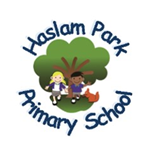History
Subject Lead: Mrs. V. Parry
History 3 I’s
Intent
At Haslam Park, we recognise all of our pupils are unique and different and we strive to provide a relevant, inclusive education for all. We are proud to have developed an enquiry-based history curriculum that includes topics that we believe reflect our children’s heritage and interests, thus allowing us to deliver an engaging and encouraging curriculum for all and in particular, disadvantaged pupils and pupils with SEND. Pupils engage in a rich and exciting curriculum which builds on their knowledge and cultural capital as they progress through their primary years. We provide opportunities for pupils to deepen their understanding of history and gain historical perspective by placing their growing knowledge into different contexts with an increasing understanding of the connections between local, regional, national and international history.
While being ‘historians’, the pupils revisit 5 key concepts and themes: culture, rule of law, society (role of women and children), conflict and migration. These concepts are revisited a number of times, so that the children’s understanding is deepened as they move through the school. Our aim is to ensure that pupils enter KS3 with a sophisticated understating of these concepts so that they have a well-informed historical perspective on their world. (Please see our history theme progression map for when and where each theme is revisited.)
Implementation
In order for pupils to deepen their understanding of historical enquiry, we have 5 common themes (rule of law, conflict, migration, society and culture) which are weaved through the curriculum to ensure that pupils are building on their existing knowledge, and are making links between different historical eras and the impact they have had on the world we currently live in.
Each lesson follows the same structure. Time is dedicated at the beginning of each lesson to revisit previous learning and concepts during our ‘Daily Review’. Having carefully selected what we want our children to learn, we endeavour to ensure this knowledge is retained in the children’s long term memory. Our approach focuses on well-structured enquiry, helping pupils to think for themselves and demonstrate their historical understanding. All our History lessons are organised around a key question. Children learn using a variety of sources- both secondary and primary.
Opportunities to apply and further develop children’s reading skills has been deliberately planned into History lessons wherever possible. Historical thinking demands the ability to investigate, consider, reflect and review the events of the past. Children are taught to think critically about sources they are presented with, thus equipping them with the necessary skills to be open minded and respectful of evidence in later life.
Our pupils begin their history education in EYFS, looking at the concept of ‘then’ and ‘now’. Pupils look at their family and past celebrations to gain an understanding of events from the immediate past.
In line with the National Curriculum 2014, KS1 topics have been carefully planned to ensure children develop an awareness of the past. Key themes such as similarity and difference and cause and consequence are introduced and unpicked. They will learn about significant individuals in modern history, including Florence Nightingale and Rosa Parks, who have contributed to national and international achievements. They will also study changes within living memory as well as events beyond living memory that are nationally or globally significant such as The Great Fire of London. A whole school approach has been adopted to ensure that as early as EYFS, the children start to develop a sense of chronology, so that as they move into KS1 and beyond, they can place their learning in a chronological framework.
As pupils move into KS2, they begin to study events further in the past- moving from The Roman Empire in Britain’ (year 3) to ‘Ancient Sumer’ (year 6) for example. Once pupils have a secure understanding of chronology, they are able to make connections and understand how events in history fit together.
The aim of the KS2 programme of study is for pupils to continue to develop a chronologically secure knowledge and understanding of British, local and world History. Indeed, in upper KS2, they will study a range of time periods such as Ancient Greece, whilst in lower KS2 children will study The Great Plague. Local History is brought to life through studying the battle of Peterloo. Children will consider connections, contrasts and trends over time and develop the appropriate use of historical terms.
When and how?
EYFS
-
Pupils will develop their historical understanding holistically, through the ‘Understanding the world’ element of the EYFS curriculum
KS1
-
Pupils will engage in weekly history lessons, which will, each week, build on the previous week’s learning
-
Pupils will learn about significant events on a local, national and global scale
-
Pupils will learn about the lives of significant individuals in the past who have contributed to national and international achievements
-
Pupils will learn about significant historical events, people and places in their own locality
KS2
-
Pupils will engage in weekly history lessons, which will, each week, build on the previous week’s learning
-
Pupils will learn about significant events on a local, national and global scale
-
Pupils will continue to develop a chronologically secure knowledge and understanding of British, local and world history
-
Pupils will note connections, contrasts and trends over time and develop the appropriate use of historical terms.
-
Pupils will regularly address and sometimes devise historically valid questions about change, cause, similarity and difference, and significance.
-
Pupils will construct informed responses that involve thoughtful selection and organisation of relevant historical information.
-
Pupils will understand how our knowledge of the past is constructed from a range of sources and through enquiry-based history lessons.
Impact
History is assessed at the end of each unit of work (three times per year) and data is analysed to guarantee the quality of education enables all pupils to become secure historians.
Through pupil voice children will be able to talk about their knowledge and skills that they have acquired. Children will be engaged in history lessons and will want to find out more.
Work will show that a range of knowledge and skills are being acquired with cross curricular links identified and utilised. The school environment will be humanities –rich with work displayed alongside key vocabulary. As historians, pupils will learn lessons from history to influence the decisions they make in their lives in the future. Their skills on enquiry will be well-developed by the time they leave primary school.
Assessments and monitoring will show standards in history will be high and will match standards in other subjects.
Curriculum overview
Below you can find the curriculum overview for History for the current academic year, 2022-23 . For a more detailed overview of how how our curriculum is carefully linked and revisit, please
|
|
Autumn |
Spring |
Summer |
|
EYFS |
Talk about my family Learn about the history of bonfire night Share experiences of their own celebrations such as Diwali Q, How was last year’s celebrations to this year?
|
Share experiences of their own celebrations such as Christmas. Q, How was last year’s celebrations to this year? Ch to share photos of them in the past (younger) and discuss how they have changed
|
Share experiences of their own celebrations such as Eid Q, How was last year’s celebrations to this year? Ch to share photos of them in the past (younger) and discuss how they have changed History-Q. How have holidays in England changed from the past? Look at some holiday snaps from the past. History-Q. Why do photographs look different in the past? Holiday photos. |
|
Year 1 |
Grace O’Malley Culture Rules and Law Society- role of women
|
Local history study- shops Culture- technology Society- role of women/lives of children
|
Christopher Columbus and Neil Armstrong Culture- technology Migration- exploration Rules and Law- captains and piracy. |
|
Year 2 |
Rosa Parks Society- role of women Conflict- race Rules and Law
|
Great Fire of London Culture Rules and Law
|
Local history study- houses Society Culture Migration (SMSC/British Values) |
|
Year 3 |
Changes in Britain from the Stone Age to the Iron Age Migration Culture Society- role of women
|
The Roman Empire in Britain Conflict Law Role of women (Boudicca)
|
The effect of Anglo Saxons, Vikings and Scots settlement in Britain. Migration Conflict Society- role of women |
|
Year 4 |
The Viking and Anglo Saxon struggle for the Kingdom of England.
Conflict Migration Society-role of women |
The Great Plague Rules and Laws
|
Early Islamic Civilisation Culture Society- role of women and other groups
|
|
Year 5 |
Ancient Greece Society- role of women Conflict- race Rules and Law |
World War 2- The Blitz Conflict Society- Role of Women Culture |
Beliefs in Ancient Egypt Society Culture (summer 1) |
|
Year 6 |
Ancient Sumer Culture Conflict |
Local History Study: Peterloo Massacre Conflict Rules and Law |
Slavery Migration Settlement Conflict
|
Should you have any questions, or for more information, please contact Mrs Griffin, who will be happy to discuss these with you.
Knowledge organisers
Below is an example of one of our Knowledge Organisers - each unit taught across school has its own Knowledge Organiser to reflect the vocabulary being taught, to show working examples and to prompt discussion in class. Here is a link to the other History Knowledge Organisers: https://haslam.sites.schooljotter2.com/edit/9655347
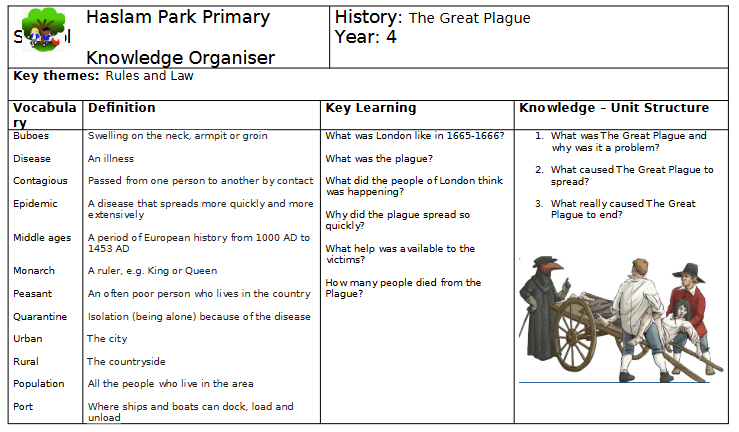
Primary National Curriculum
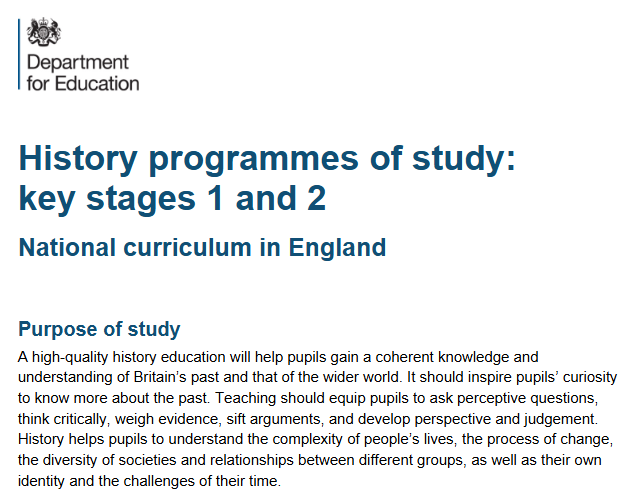
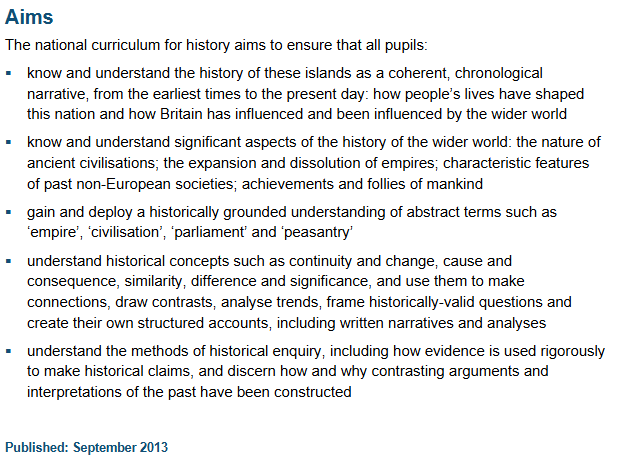

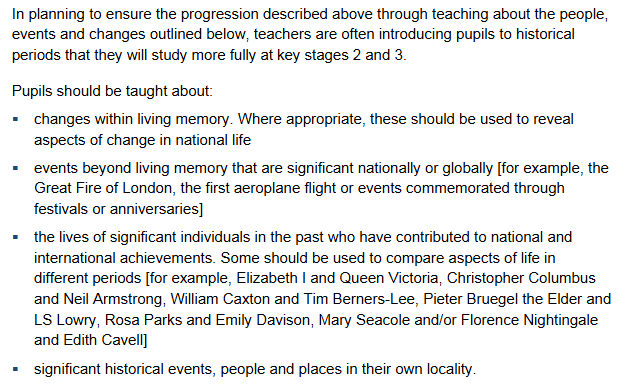
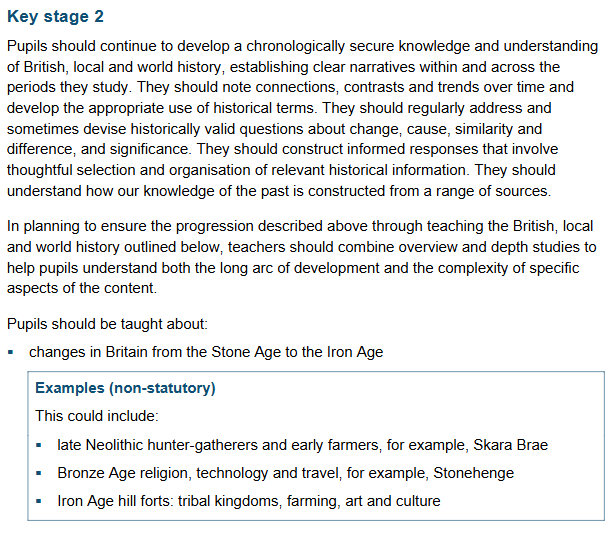
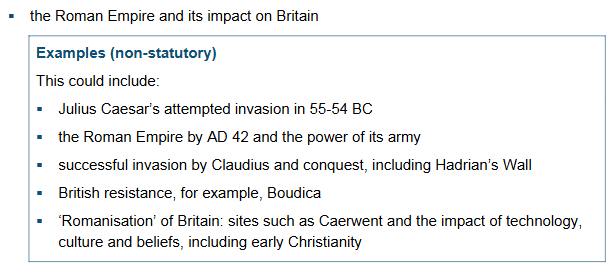
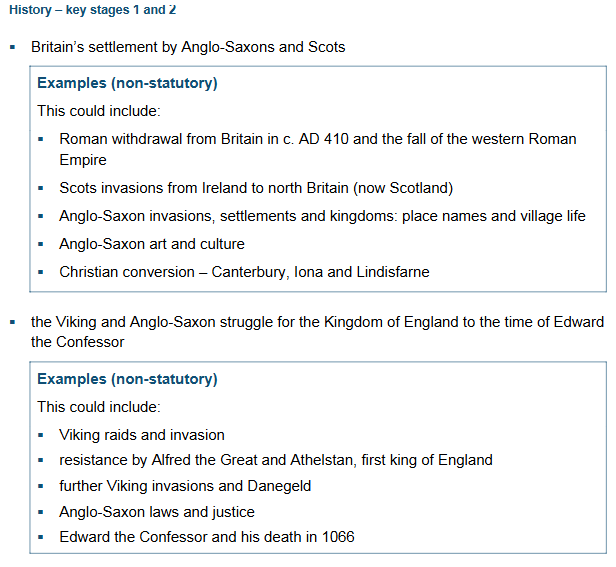

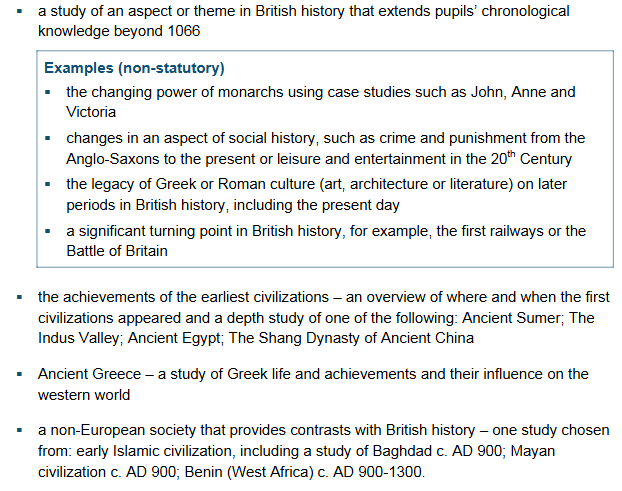
At Haslam park all classes follow the same structure when delivering History lessons, to ensure consistency and allowing for progression. The lesson looks like this...
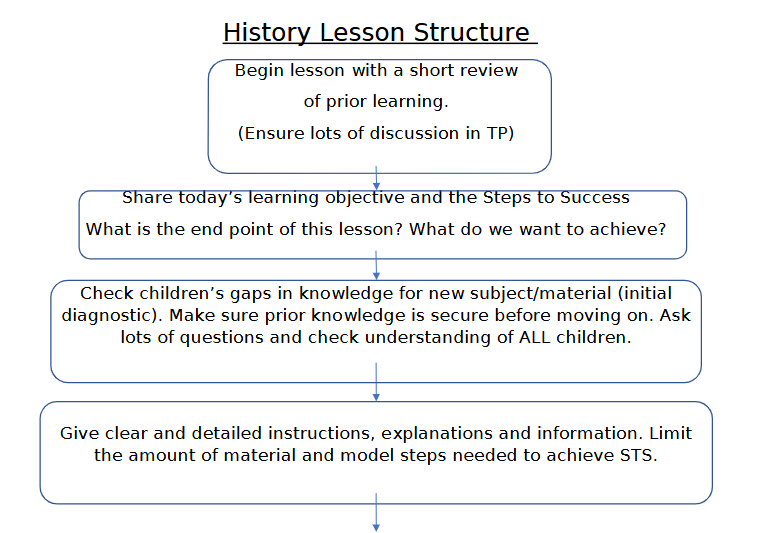
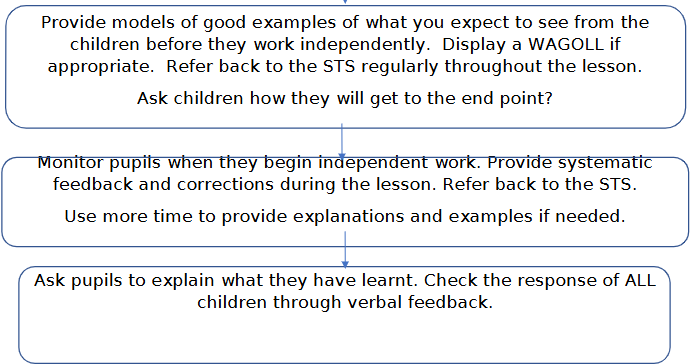
Women's History Month
March 2022
March is International Women's History Month and to mark such an important month in the calendar, we started off by sharing an assembly all about Women's History Month. Originating in 1978 in California by 5 women in the National Women's History Alliance, it was initially led by Molly Murphy MacGregor, and collectively the alliance identified that women's accomplishments in history were practically invisible, as there was very little information recorded in any history books.
Women's History Month celebrates the contributions of women and girls to events and achievements in history and contemporary society. This week, Haslam Park children engaged in guided reading activities dedicated to some amazing key women in history such as Florence Nightingale, Rosa Parks, Amelia Earhart and Queen Boudicca. Take a look at some of the amazing activities we got up to...










History catch up curriculum day
Friday 18th February 2022
Here at Haslam Park, we care about what our children say and think, and one of the questions that came up during our recent History pupil voice was 'When will we learn about the topics we missed during lockdown?' So, we planned a full day of activities across school, to address the topics the children had missed. Have a look at the learning our children engaged in...

EYFS learnt all about castles

Year 1 learnt about the history of toys and made their own toy

Year 2 enjoyed learning about Grace O' Malley

Year 4 learnt about how Britain changed from the Stone Age to the Iron Age
